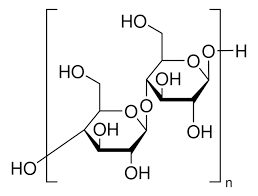Micro Crystalline Cellulose

Product Description
Microcrystalline Cellulose (MCC) is a refined wood pulp derivative widely used across various industries due to its excellent binding, stabilizing, and anti-caking properties.
Product:
Micro Crystalline Cellulose
CAS:
9004-34-6
Synonym:
Cellulose; Cellulose powder; Cotton linters
Structure:

Typical Characteristics
Appearance
White powder
Density
1.57 g/cm3
Flash Point
164 °C
Melting point
76-78 °C
Molecular Weight
324.28
Odor
Odorless
Purity
99%
Refractive index
1.504
Uses, Applications & Markets
Key applications
get a quote
We Offer Micro Crystalline Cellulose
in various grades
A few of the grades available are listed below:



Micro Crystalline Cellulose used in many
industry applications
Microcrystalline Cellulose (MCC) is a refined wood pulp derivative widely used across various industries due to its excellent binding, stabilizing, and anti-caking properties. It is a versatile ingredient with numerous applications in different sectors. Below are some of its industrial applications:
- Pharmaceutical Industry: MCC is a common excipient in tablet formulations due to its binding properties. It helps in forming tablets that are hard enough to withstand handling yet dissolve easily in the digestive tract.
- Food Industry: In the food sector, MCC is used as a texturizer, anti-caking agent, fat replacer, and stabilizer. It is commonly found in products like ice cream, baked goods, processed cheese, and sauces.
- Cosmetics and Personal Care: MCC is used in cosmetics as a thickener, binder, and bulking agent. It is present in various products such as face powders, creams, lotions, and toothpaste, providing consistency and stability.
- Industrial Applications: In industrial applications, MCC serves as a filler, binder, and flow aid in products like paints, coatings, adhesives, and sealants. Its stability and uniform particle size make it ideal for these purposes.
- Pharmaceutical Coating: MCC is used as a coating agent in pharmaceuticals to control the release of active ingredients, enhancing the stability and shelf-life of drugs.
- Animal Feed: In animal nutrition, MCC is added as a fiber supplement, offering nutritional benefits and improving the physical texture of feed pellets.
- 3D Printing and Filament Manufacturing: MCC is increasingly being used in the production of bio-based 3D printing filaments. It provides stability, binding, and structural integrity to the final product.
- Dietary Supplements: It is widely used in dietary supplements as a bulking agent and to enhance the bioavailability of nutrients in tablet and capsule forms.
- Paper Industry: In papermaking, MCC is used as a filler to enhance the physical properties and quality of paper products, providing improved texture, opacity, and brightness.
- Medical Devices: MCC is also used in the production of certain medical devices, such as wound care products and absorbent pads, where it provides stability, absorbency, and non-reactivity.